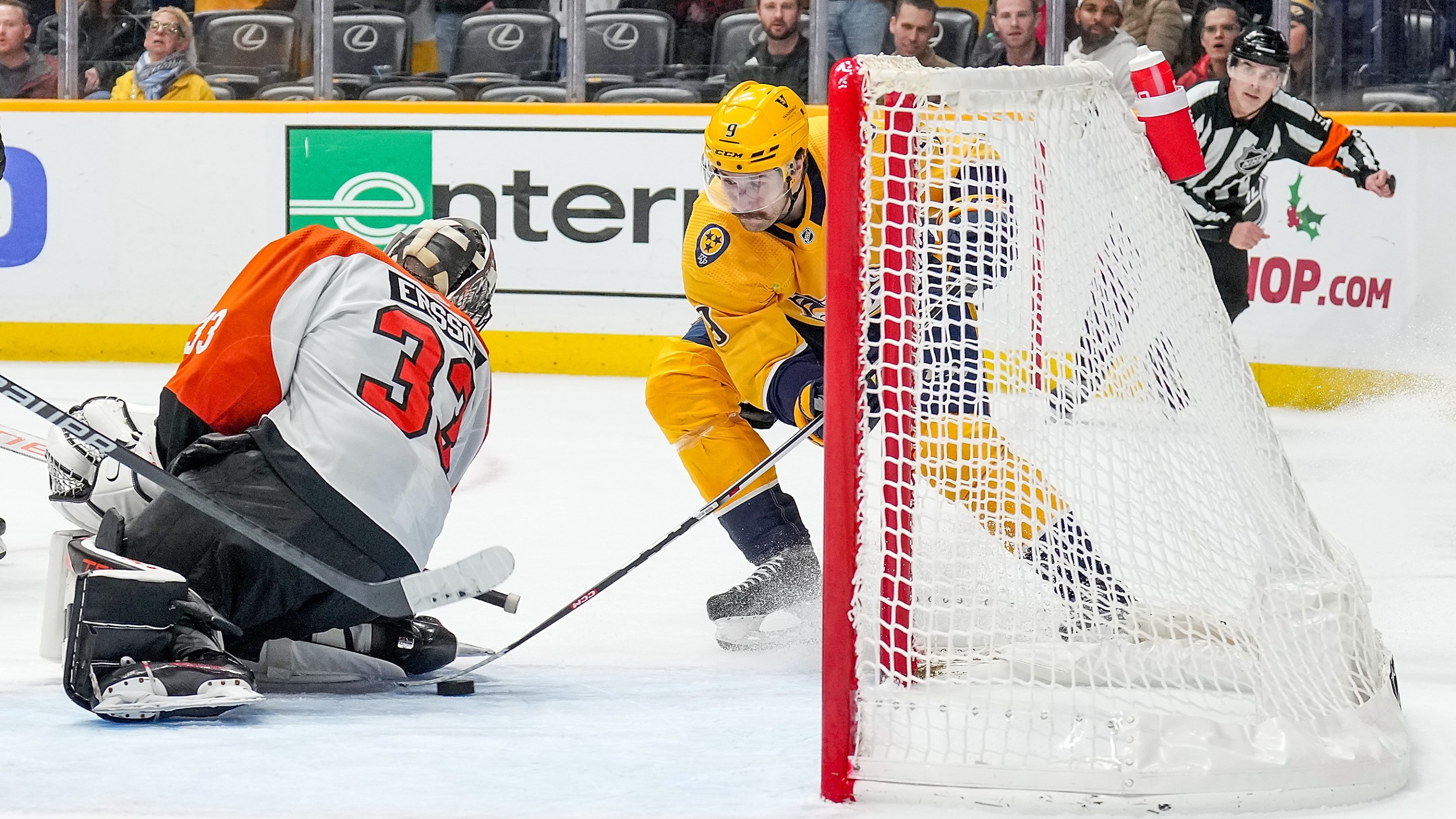The Flyers came into their game against the Nashville Predators in third place in the Metropolitan division. Third! Before the Islanders beat the Leafs in overtime the night before, they were even second. Yes, the standings are currently in a delicate equilibrium—second and sixth in the Metro are separated by only four points—but the Flyers have played over a third of their season and have already exceeded expectations, even if they were extremely low ones. If you put stock in power rankings, ESPN's preseason predictions had them as the fourth-worst team in the NHL. If you put stock in models, the Athletic's projections had the Flyers at a near-zero percent chance to make the playoffs, a number that has since clambered to 31 percent. The previous game, the Flyers had beaten the Colorado Avalanche 5-2. Could the Flyers be ... good?
Unfortunately, the Flyers happen to be in a rebuild. Whether you want to call it Process Brain or playing the game for a lottery spot, winning at all has become antithetical to rebuilding. Some of this is stone-cold practicality, which results from a draft system that can't help but incentivize bad teams to lose more. The Flyers beat the dearly behated Penguins twice in a row, once in a shootout and once in overtime, and there were still people who couldn't celebrate, enough of them that poor beat writers have to take a stand. As if the job of the fan is to play at general manager! Would it really be preferable to dwell in the abysmal mire where the Sharks and Ducks swim?
Not that I, a trained pessimist, can't see the appeal. If your team is—no offense—crap, losing is the expected course of action; an occasional win allows for unadulterated joy, because it's extremely unlikely to jeopardize the larger tank. But this Flyers rebuild has existed in a rather miserable limbo. They appeared to be on the up-and-up before the 2020–21 season, when Carter Hart posted a .877 save percentage, which was not the only part of the Flyers' struggle, but certainly helped define it, and never quite found their footing again. They traded Claude Giroux in 2022, and after Chuck Fletcher lost his job, Danny Briere swept in and immediately uttered the word "rebuild," which Fletcher had carefully avoided in his tenure. Of course, just three years before Briere arrived, they'd made the playoffs, but that became increasingly easier to dismiss as a flash in the pan, wedged between two sixth-place finishes, though only ever in retrospect.
Thanks to both Yermín Mercedes and the Los Angeles Dodgers, I've become extremely randomness-pilled. Sometimes you can accurately predict the success or failure of a series or signing, and sometimes you absolutely cannot. Variance exists. Coaches and players on middling teams all have a complex relationship with this concept, by which I mean they often say, usually after a bad loss, "We have to find a way to be more consistent." I would qualify that by "consistency," the greater NHL milieu means "consistently good," and would still prefer an "occasionally good" player over a "consistently bad/mediocre" one, but. Well.
Whatever form of consistency is being discussed, it spurs the same question: How would one go about becoming more consistent? I don't mean just getting good, because that's about improvement and not consistency, but rather, how do you iron out those variance wrinkles? The sport of hockey does not lend itself to tidy outcomes. The universe doesn't even allow for the Sharks to be—and this visualization blows my mind—consistently bad! Not all or even most losses occur because of luck, but I think a good skill to have is to know when you should just smack something with the variance hammer and move on with your life.
For example: The Flyers outshot the Predators 39-22 and still lost 3-2 in overtime? You just got Saros'd. Gustav Nyquist scored on a tip-in? OK, maybe that one was just a nice play. And Michael McCarron scoring a goal on a delayed penalty where Garnet Hathaway had touched the puck? Referee incompetence, but also, unlucky. Sean Couturier being incredibly patient with the puck and just sliding it under the barely lifted edge of Saros's goalie pad with under 30 seconds to go in the second period? That was genuinely nice, and we can take a moment to appreciate it.
Travis Konecny getting away with a blatant hold at center ice so his fellow Travis (Sanheim ver.) can score a goal? Sometimes the ref luck cuts your way. Filip Forsberg scoring 18 seconds into overtime after Samuel Ersson just barely missed pinning the puck? Aw, man. That's variance for you.






